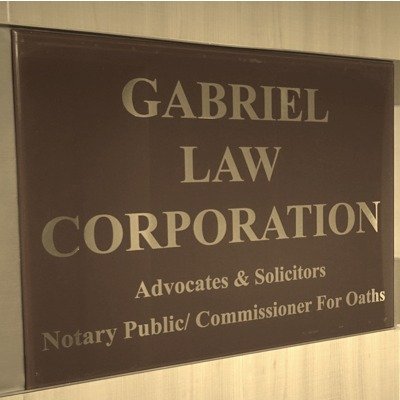Best Medical Malpractice Lawyers in Raffles Place
Share your needs with us, get contacted by law firms.
Free. Takes 2 min.
List of the best lawyers in Raffles Place, Singapore
About Medical Malpractice Law in Raffles Place, Singapore
Medical malpractice law in Raffles Place, Singapore revolves around the principle of negligence committed by medical practitioners. These occur when healthcare professionals fail to provide the standard level of care that a competent professional in the same position would have offered, leading to patient harm. This sector of law helps safeguard patients' rights while ensuring healthcare service providers remain accountable for their actions.
Why You May Need a Lawyer
Need for legal help in medical malpractice often arises in situations where patients suffer unnecessary harm due to negligent medical treatments, wrong diagnosis, lack of informed consent, medical product liability, and breach of confidentiality among others. Lawyers help in investigating the case, understanding its nuances, proving negligence and battling the case in the court for claiming compensation.
Local Laws Overview
The key aspects of local laws significant to medical malpractice cases in Singapore include the concept of a 'duty of care' which a medical practitioner owes to his/her patients. This is followed by the need for proof of a breach in the duty of care as well as establishment of a direct link between the breach and the damage/harm caused. The Singapore Civil Law also requires evidence of quantifiable injury/harm caused by the practitioner's negligence to claim any compensation.
Frequently Asked Questions
What is the statute of limitations for medical malpractice in Singapore?
In Singapore, medical malpractice claims must typically be filed within three years from the date the malpractice was realised.
Does signing a consent form for treatment absolve practitioners from malpractice claims?
No, signing a consent form does not exempt a healthcare provider from potential negligence as malpractice could still occur in the course of treatment.
Can I sue a doctor who is no longer practicing?
Yes, a doctor can still be sued for medical malpractice even if they have stopped practicing, as long as it falls within the statute of limitations.
What types of damages can be claimed in a medical malpractice lawsuit?
A claimant may be able to recover for physical and psychological damage, loss of earnings, loss of earning capacity, medical expenses, and other associated costs.
Can nurses and other health care workers also be sued for malpractice?
Yes, any healthcare professional, not just doctors, can be held liable if they cause harm due to negligent behavior.
Additional Resources
Useful resources for those seeking legal advice in this field includes the Singapore Medical Council, the Ministry of Health, Singapore, and HealthServe, all of which provide guidelines, ethical standards, regulations, and relevant information pertaining to the healthcare sector.
Next Steps
If you believe you have been a victim of medical malpractice, it is advisable to immediately contact a legal professional specializing in medical malpractice law. They can guide you through the process to establish a claimable case and assist in filing a lawsuit if necessary. Keep all pertinent documents and records related to your case for supporting your claims. Furthermore, having a thorough understanding of your medical condition and the expected standard of care will strengthen your lawsuit.
Lawzana helps you find the best lawyers and law firms in Raffles Place through a curated and pre-screened list of qualified legal professionals. Our platform offers rankings and detailed profiles of attorneys and law firms, allowing you to compare based on practice areas, including Medical Malpractice, experience, and client feedback.
Each profile includes a description of the firm's areas of practice, client reviews, team members and partners, year of establishment, spoken languages, office locations, contact information, social media presence, and any published articles or resources. Most firms on our platform speak English and are experienced in both local and international legal matters.
Get a quote from top-rated law firms in Raffles Place, Singapore — quickly, securely, and without unnecessary hassle.
Disclaimer:
The information provided on this page is for general informational purposes only and does not constitute legal advice. While we strive to ensure the accuracy and relevance of the content, legal information may change over time, and interpretations of the law can vary. You should always consult with a qualified legal professional for advice specific to your situation.
We disclaim all liability for actions taken or not taken based on the content of this page. If you believe any information is incorrect or outdated, please contact us, and we will review and update it where appropriate.










